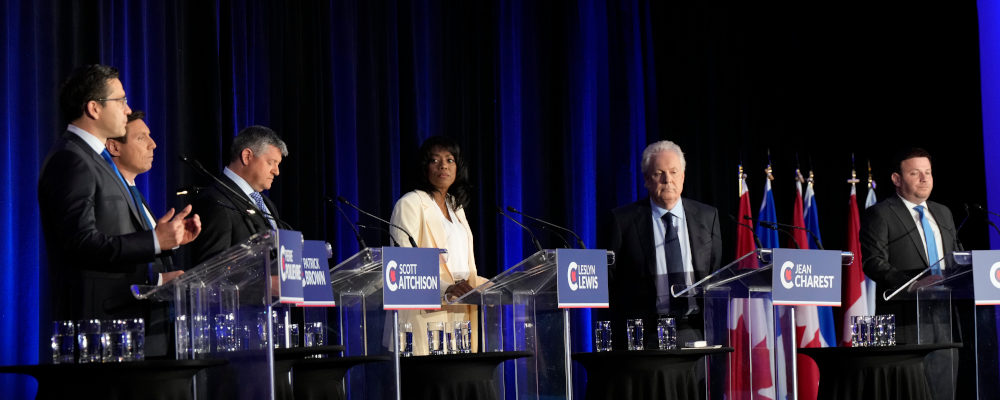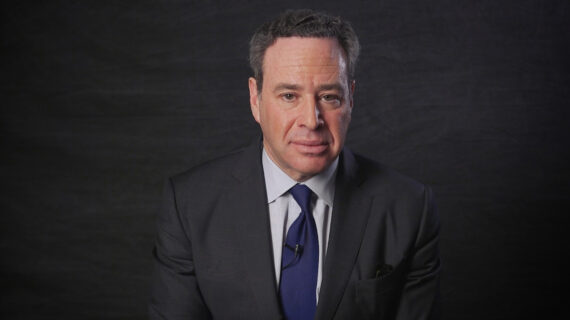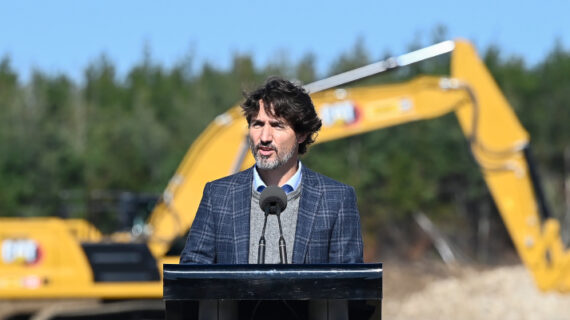Last week was a big one in the world of political campaigning in Canada. Ontario’s 29-day provincial campaign ended with an expanded majority government for the Ontario Progressive Conservative Party. The membership sales cut-off in the Conservative Party of Canada’s leadership marked a key milestone on the path to voting on September 10.1A whole new campaign is about to start in the Conservative leadership race https://thehub.ca/2022-06-03/a-whole-new-campaign-is-about-to-start-in-the-conservative-leadership-race/
These two electoral events have caused me to reflect on some of the fundamental questions about politics: what is the purpose of our system of representative democracy in the modern era? Why have recent political campaigns tended to succumb to a lowest-common-denominator transactionalism? How can we raise the quality of political ideas and debate? And how can we reorient politics to the common good?
One of my enduring, if perhaps naïve, opinions about politics is that most politicians are genuinely interested in the pursuit of bettering our society. There are moments when this belief is shaken, but in general, our politicians tend to show the appropriate levels of grace and solemnity once the dust settles over a campaign.
Campaigns themselves are a different matter. It goes without saying that they are nasty affairs with little if any genuine debate.2A ‘policy-free conversation’: The Hub Roundtable breaks down the first CPC leadership debate https://thehub.ca/2022-05-06/the-hub-roundtable-breaks-down-the-first-cpc-leadership-debate/ Democracy is the combined expression of the will of millions of people, most of whom have no higher-level training in economics, law, and foreign policy. In a representative democracy, there is some level of understanding that the politicians that we elect would take the time and care necessary to achieve a base level of competence in these disciplines, to at the very least give meaningful effect to the gestalt will of their constituents.
A keen observer will note that politicians say little of anything even there. Politically, we have entered an entirely post-rational era of discourse: style over substance, messaging directed at only key demographics, and interviews designed to produce memeable soundbites contribute to the uglification of our campaign culture. Candidates are then judged based on equally superficial standards: does she get people like me? Would I have a beer with him? Do they have an attractive family?
I am a former staffer, so I believe that campaigns are run this way because these strategies work. In our high information society, political campaigns must compete with other forms of information that voters access. This information includes movies, social networking, music, news, and sports. Political campaigns accordingly must compete against other forms of “entertainment” to become salient in the limited attention spans of the average voter. Everyone says they hate “negative campaigning,” yet political parties use it every election. They would not if it did not work.3Why negative campaigning works—and how to fight it https://www.universityofcalifornia.edu/news/why-negative-campaigning-works-and-how-fight-it
I am certainly not the first person to make this polemical observation, and almost everyone agrees that degenerating a substantive and deliberative political culture into a post-rational one is something to avoid.
That said, I think many of us have supported candidates where we disagreed with how they were campaigning but justified that support after the fact on utilitarian grounds like: “Yeah, I know this is bad, but the other guy is worse, so this is for the greater good,” or deontological grounds like “everyone does it, and I think we will suffer greater losses if we don’t.” Neither one of these rationales should satisfy someone striving to be moral in their politics.
We have seen plenty of examples of populist demagoguery descend into political movements where basic small l-liberal concepts like “personal responsibility” and “human dignity” are unreasonably infringed in the name of political expedience. The marginalized and minority groups are often the people who bear the brunt of the negative consequences of political expediency.4Civil liberties are more vulnerable now that the Emergencies Act has been invoked https://thehub.ca/2022-02-16/civil-liberties-are-more-vulnerable-now-that-the-emergencies-act-has-been-invoked/
I think that certain political staffers and politicians—of all political stripes in this country—believe that they can tame this demagoguery to their own ends. That they can simply valorize the identity of a few target demographics, wink at a few conspiracy theories here and there, and then jump off the train before it reaches its logical destination. If this is a workable hypothesis, it requires the political faction making that decision to always be in control of the proverbial train. This is a valid choice but also a choice that carries an inherent risk. These political rationales are made using consequentialist reasoning. That is to say, “even if there are bad outcomes along the way, the end result will be worth it.”
Politicians and staffers should consider that their actions in the interim do have real effects today, not just in aggregate at the end of a campaign. Every conspiracy theory you wink and nod at might give the marginal additional consent necessary for a bad actor to take out his or her anger against an undeserving victim. Staffers, politicians, and influencers should consider whether their tacit or explicit endorsement of these campaign tactics is moral.
I want to clarify that the purpose of politics in a representative democracy is to accurately bring forward the voters’ views to government and have the will of the voters’ shape state policy. It is correct and noble for politicians to recognize and channel the anger of those voters and turn it into actionable policy. It is how our democracy is supposed to function. However, political actors should then not lose sight of the fact that they are there to serve the common good. The duty to act in the service of the common good does not vanish just because one is in the middle of a campaign.




